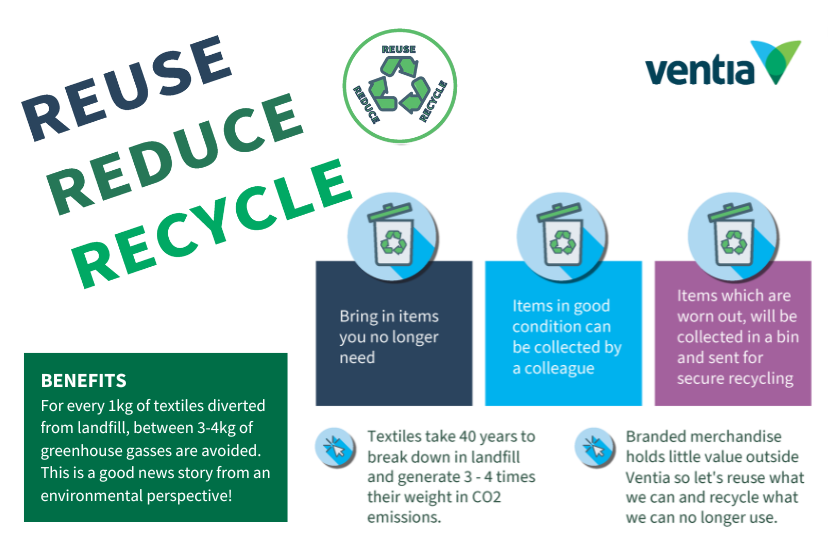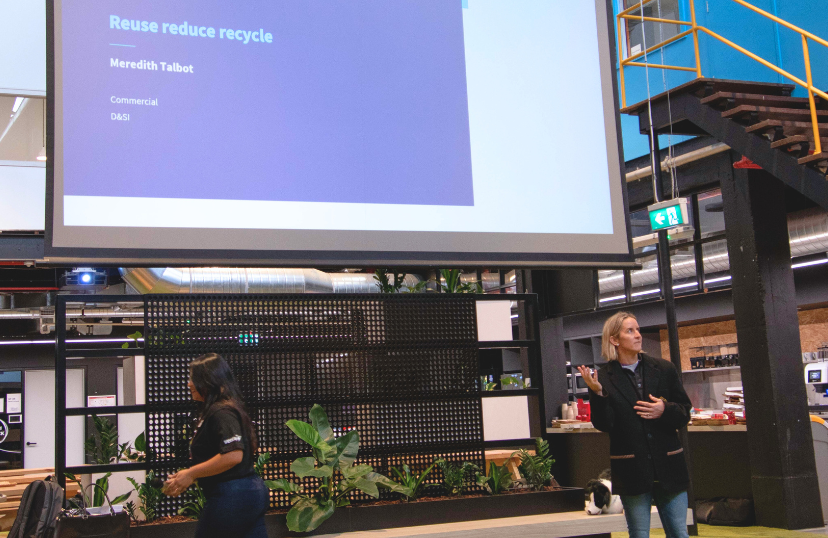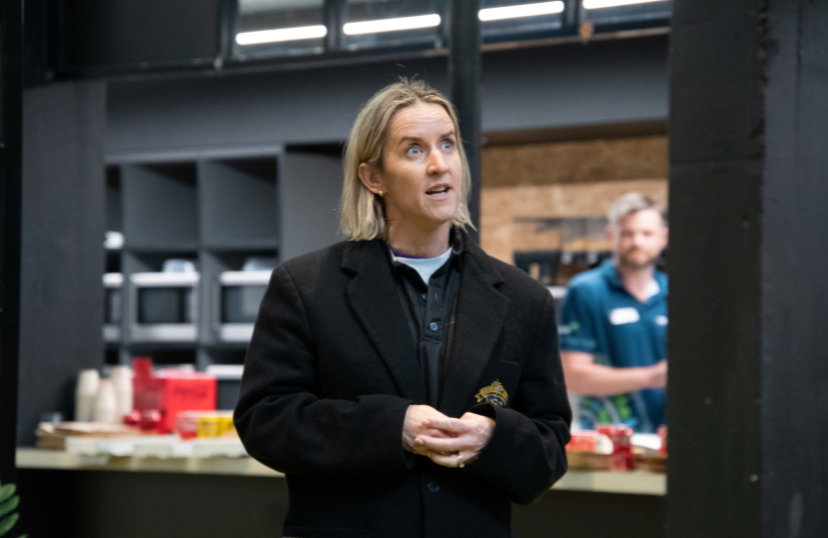Our modern business environment presents unique challenges and opportunities in sustainability, particularly in how we as organisations manage our waste and promote recycling.
Decomposition time
Textiles take 40 years to break down in landfill and generate 3-4 times their weight in CO2 emissions
Recycling value
Branded merchandise holds little value outside an organisation.
Benefits
For every 1kg of textiles diverted from landfill, between 3-4kg of greenhouse gasses are avoided.
How do we recycle our branded apparel in a sustainable way?
Facing a challenge
Mobilisation Director, Meredith Talbot encountered a personal and professional dilemma with the disposal of corporate branded clothing. As a sustainability advocate through many years, she recognised the ecological impact of such waste, given that clothing can take up to 40 years to decompose in landfills.
Inspired by the circular economy model she had observed at her children's school's second-hand clothing store, she identified an opportunity to implement a similar system within Ventia to promote the recycling and reuse of branded, corporate apparel.
Reusing a simple circular economy model
She pitched the idea at the very first ‘Pizza & Pitch’ – our company-wide innovation events, inviting our people to present a good idea – held in Melbourne in March 2023. Her approach was multi-faceted: set up an in-house recycling station for Ventia employees to share branded clothing they no longer use and/or pick up some branded clothing in your size and change up your Ventia wardrobe.
For the clothes at the end of their lifespan, working with local partner Upparel would allow the unusable clothing to go through an industrial process creating fibre that can be used in home insulation, pet beds, acoustic panelling, and more.
Her pitch was an immediate success; easy to grasp and easy to implement.
The idea takes off
Shortly after, a recycling station was set up at the Melbourne office with the help from some helpful colleagues – a simple stall with clean, used branded clothes and a mission statement, where people could browse through to see the selection or bring their own used clothing, washed and presentable to hang.
It was quickly followed by the Brisbane office and then took off, spreading over multiple office locations across Australia and New Zealand.
A single idea to effect meaningful change, inspiring employees at other locations to set up their own recycling station and find local partners to work with, rather than adding to the carbon footprint by sending unusable clothing to Upparel in Melbourne.
Sustainability practices becoming second nature
Meredith envisions a future where sustainability practices are second nature in corporate culture. She believes that the younger generation will play a pivotal role in driving this change; her own kids have much more of a recycling mindset and it’s part of their norm.
“Doing the right thing actually feels good,” she says. “And knowing you’re doing the right thing by the planet, particularly when it’s that easy – why not?”
The recycling stations now popping up around Ventia serve as a simple, visual reminder to make recycling second nature at the office.
Meredith’s idea has set a precedent, highlighting the role of individual initiative and collective action in achieving broader environmental goals.


